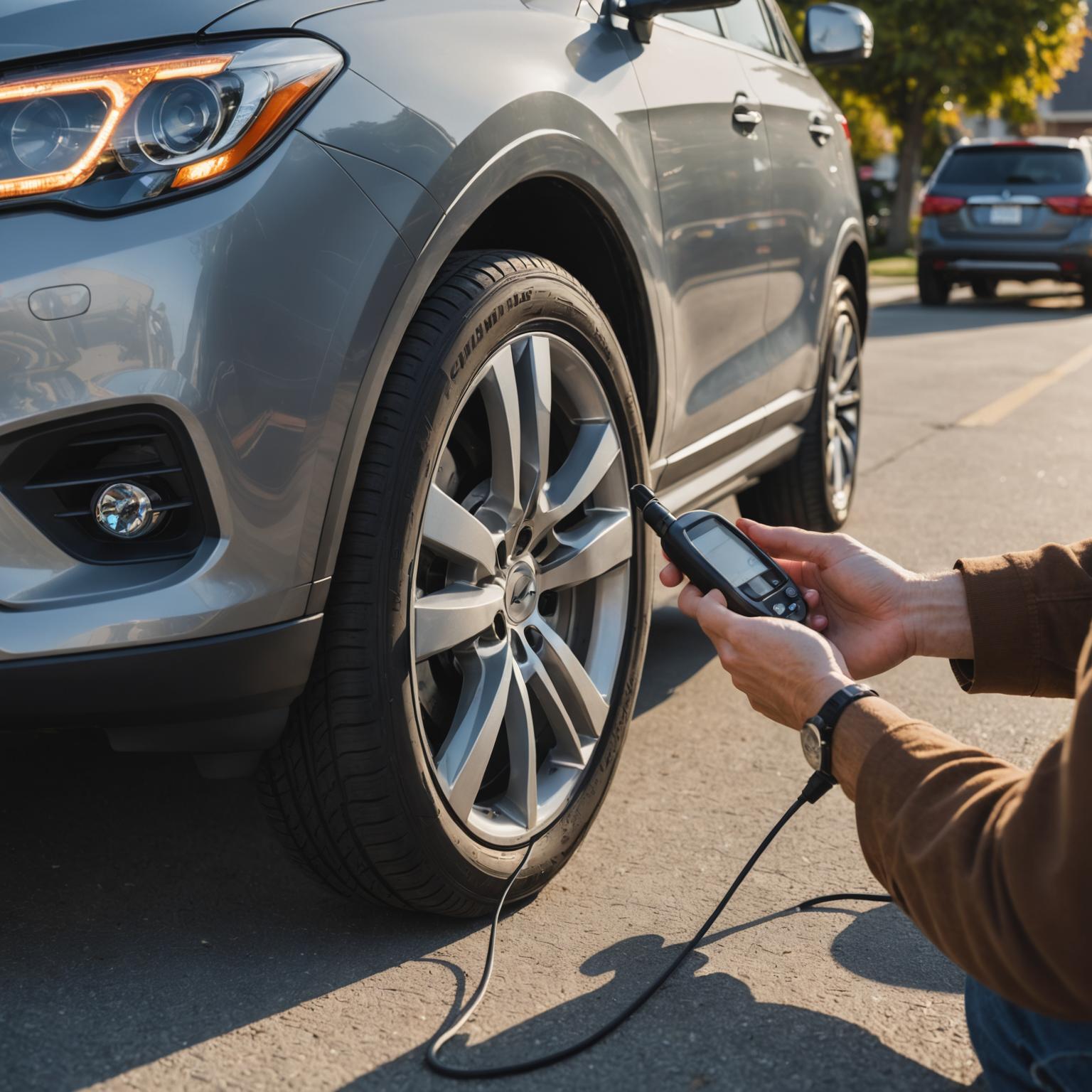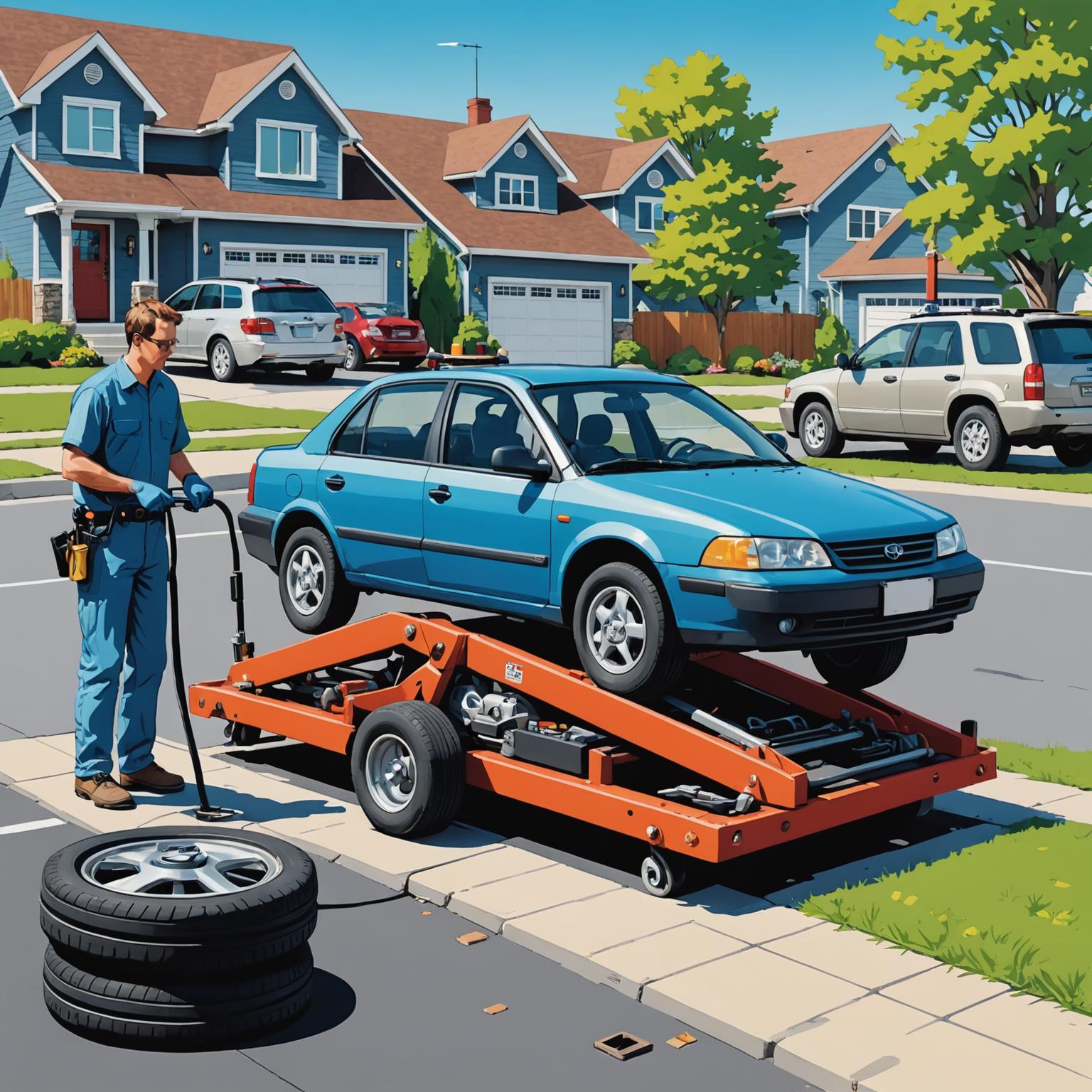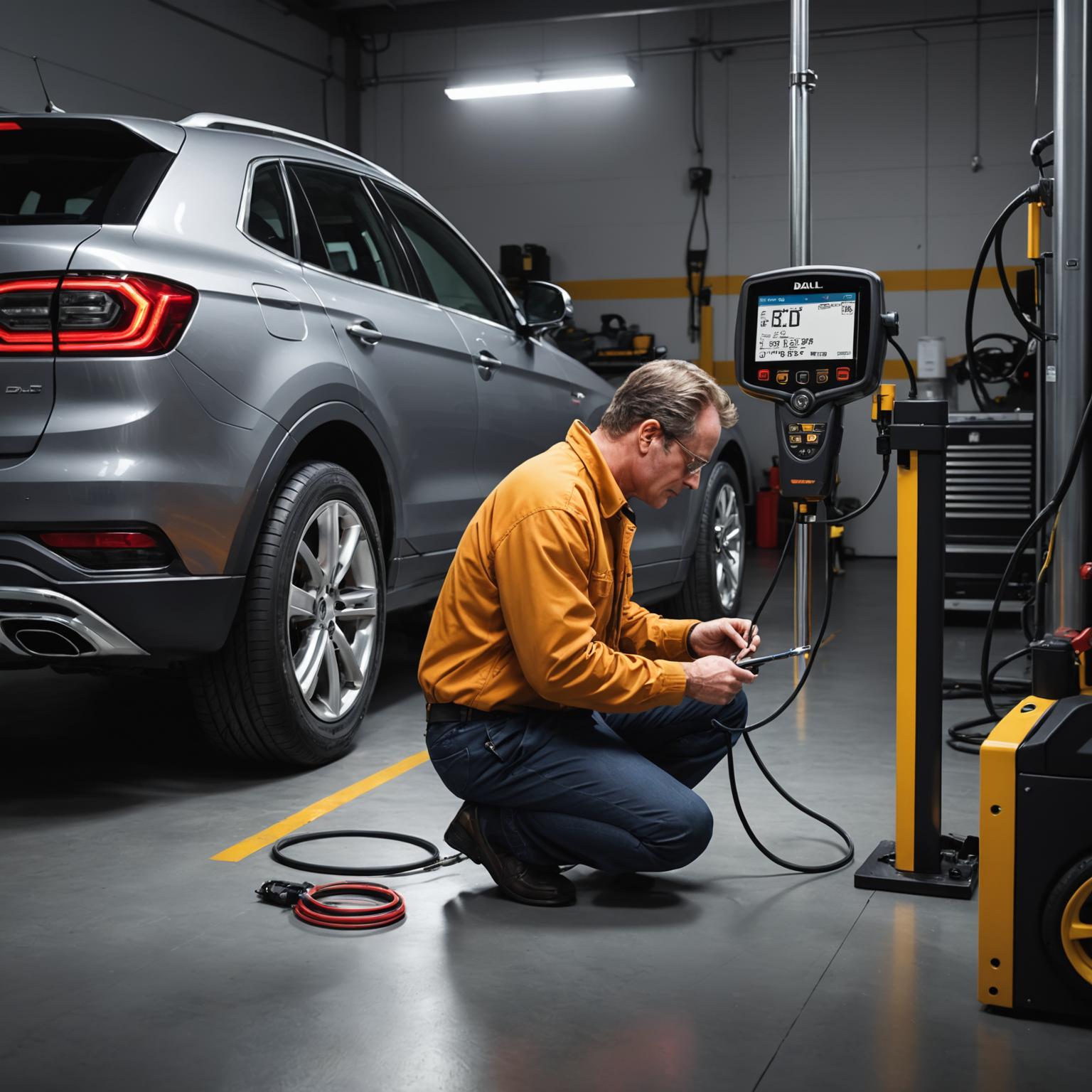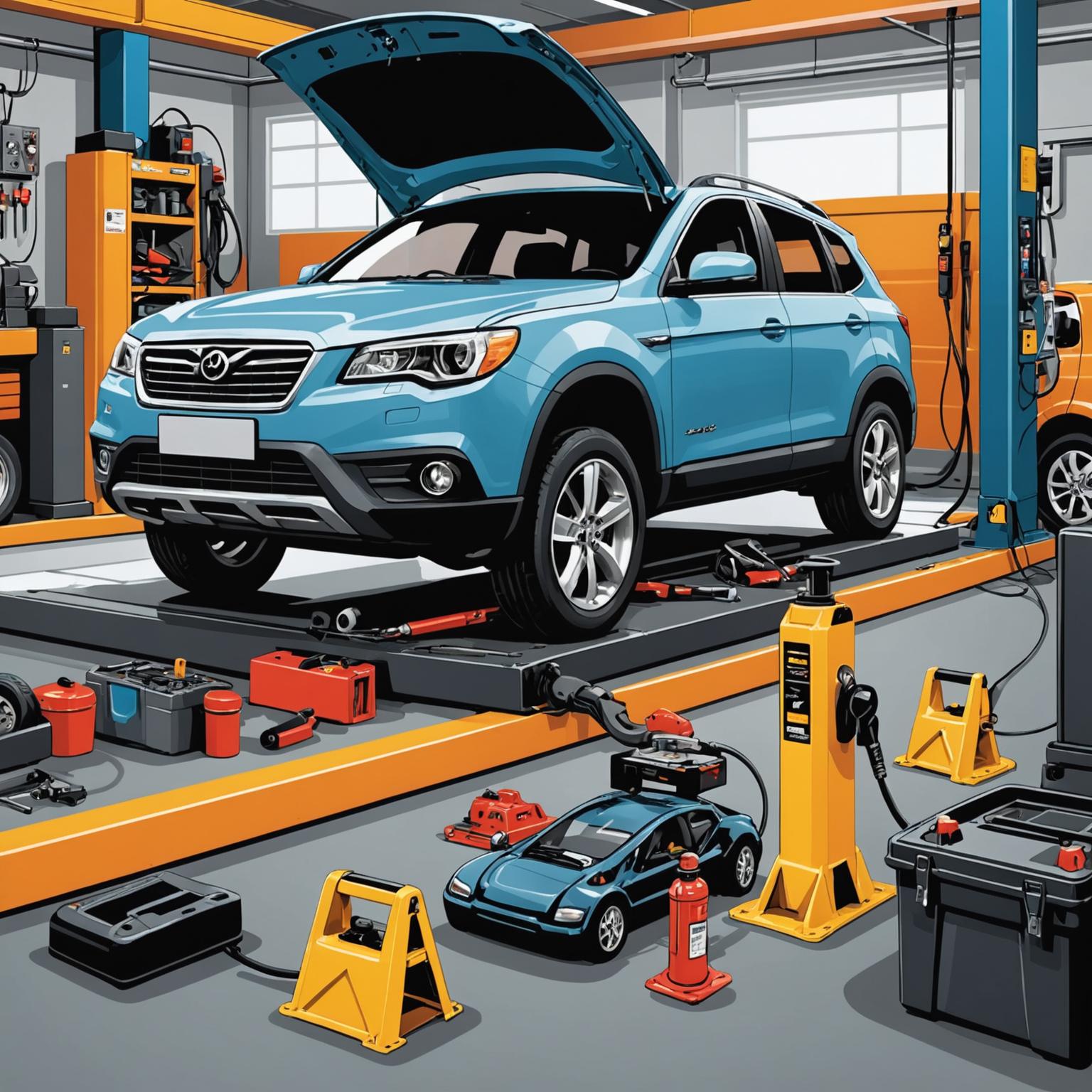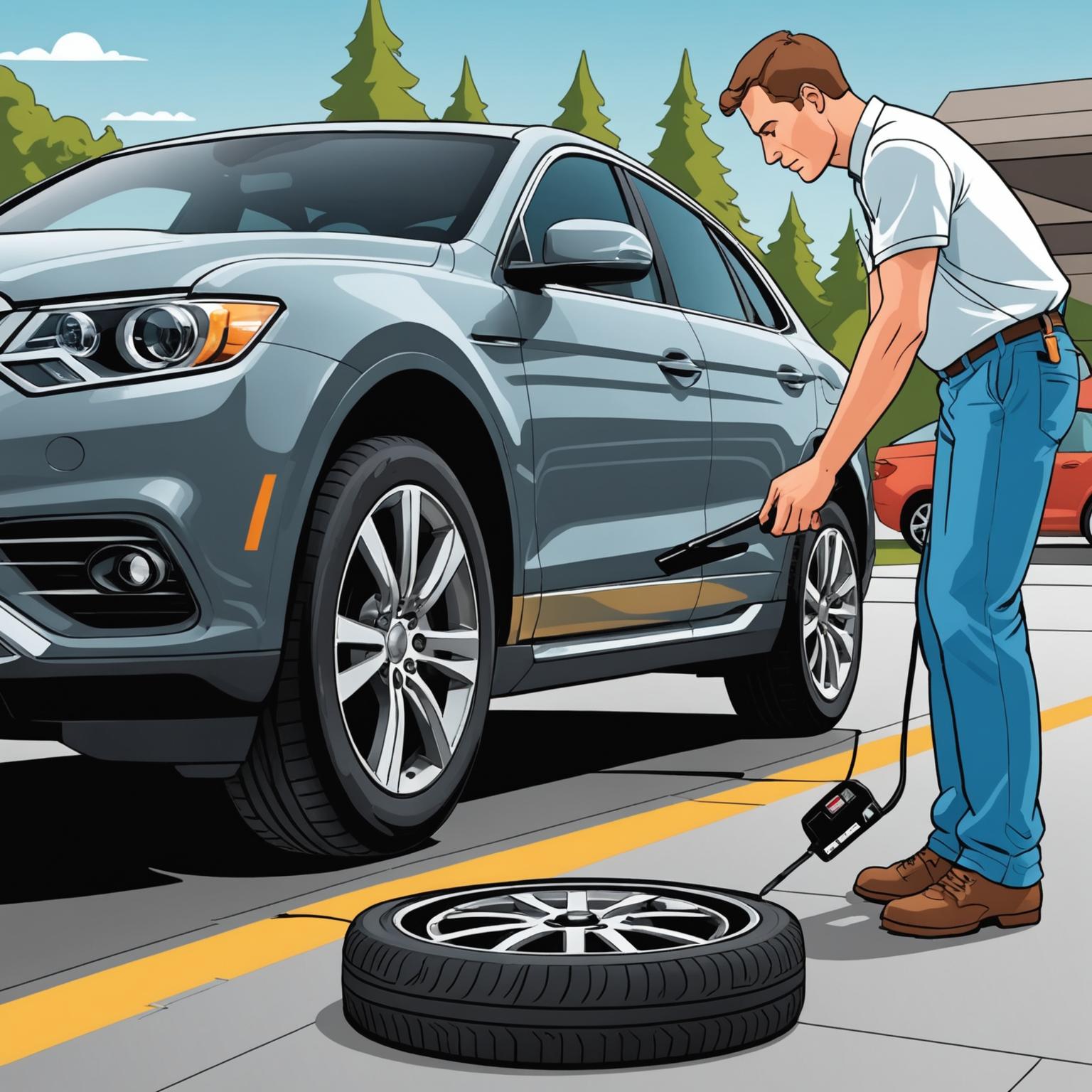The gentle hum of the road is a familiar soundtrack to any driver, a sign that all is well between your vehicle and the pavement. But sometimes, a subtle shift occurs. A slight pull on the steering wheel, a feeling that the car isn't quite as responsive, or a nagging thought at the gas pump that you're filling up more often. These are often the first whispers of a common, yet frequently overlooked, issue: incorrect tire pressure. In today's world of advanced automotive care, the solution is remarkably simple and accessible. A high-quality digital tire gauge provides an instant, clear, and precise reading, transforming a task once filled with guesswork into a definitive act of vehicle maintenance.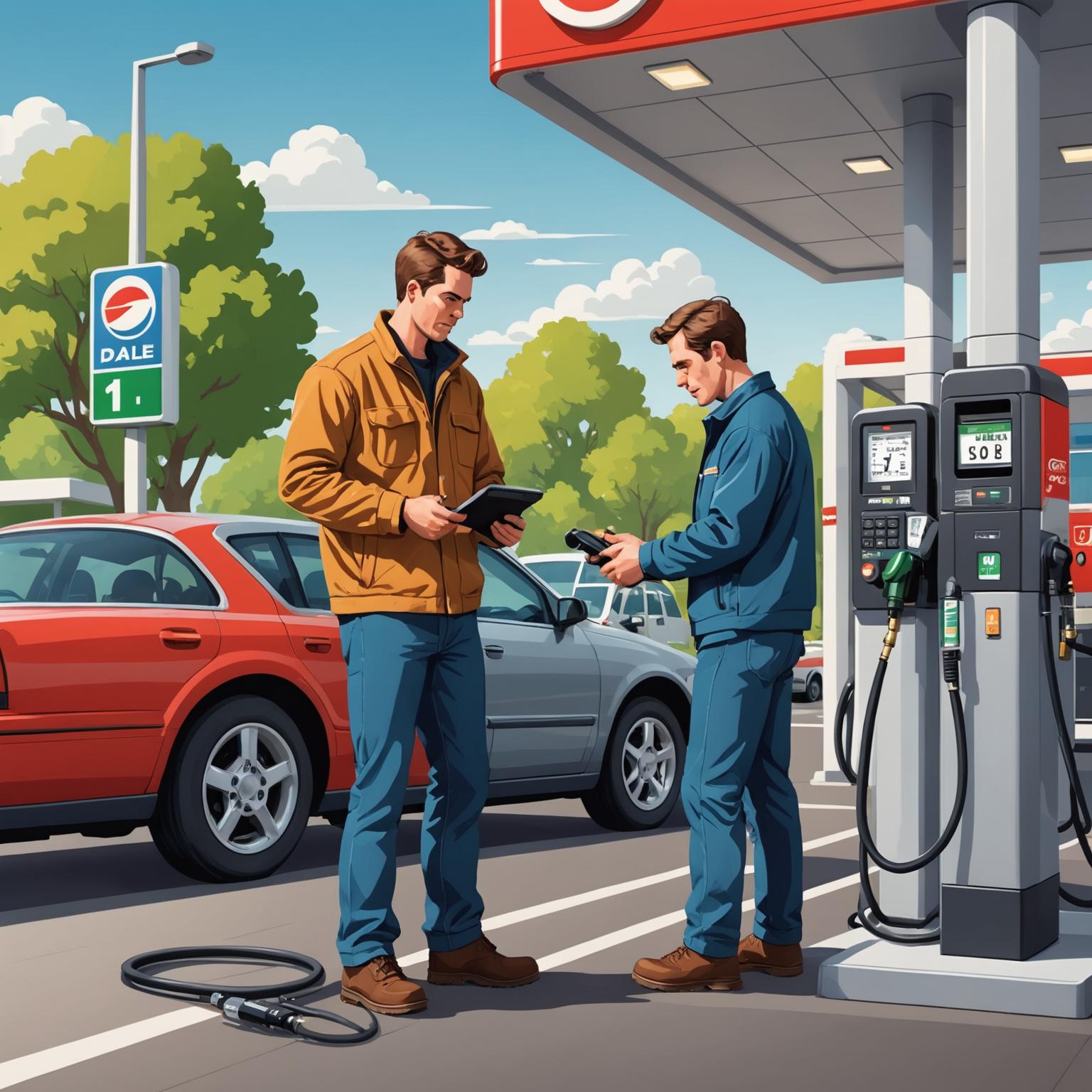
Why Accurate Tire Pressure is Non-Negotiable
Properly inflated tires are the bedrock of your vehicle's safety and performance. They are the only four points of contact, each no bigger than the palm of your hand, that connect your car to the road. When the pressure is off, even by a few PSI (pounds per square inch), a cascade of negative effects begins. Under-inflated tires flex excessively, generating dangerous heat that can lead to catastrophic failure or a blowout. They also create more rolling resistance, forcing your engine to work harder and drastically reducing your fuel economy. Conversely, over-inflated tires create a smaller contact patch with the road, leading to a harsh ride, reduced traction, and accelerated wear on the center of the tread. Effective tire pressure monitoring is not a task to be left to chance or the infrequent check at a service station; it's a regular responsibility that pays dividends in safety, savings, and driving pleasure. An accurate tire gauge is the most critical tool for this job.
The Evolution to a Better Reading: The Digital Air Pressure Gauge
For decades, drivers relied on analog gauges—the classic pencil-style plunger or the round dial gauge. While functional, these tools have their drawbacks. Pencil gauges can be difficult to read precisely, especially in low light, and their mechanical springs can wear out over time, leading to inaccurate measurements. Dial gauges offer a clearer visual but can still be prone to mechanical inaccuracies and damage if dropped. The modern digital air pressure gauge represents a significant leap forward. Featuring a backlit LCD screen, it delivers an unambiguous numerical reading down to a decimal point. There's no more squinting or estimating. With the press of a button, you get an instant, exact measurement. Many models also offer the ability to switch between different units of pressure, such as PSI, BAR, KPA, or Kg/cm², making them versatile tools for any type of vehicle, from bicycles to passenger cars and trucks.
Choosing the Best Tire Gauge for Your Needs
With a variety of options on the market, selecting the best tire gauge for you comes down to a few key considerations. Accuracy should be your top priority. Look for models that boast a high level of precision, often certified to a specific standard. Ergonomics is also crucial. The gauge should feel comfortable in your hand, and the nozzle, or chuck, should be easy to press and hold firmly against the tire's valve stem to get a good seal and prevent air from escaping. Some designs feature an angled chuck or a flexible hose, which can make it much easier to reach valves on awkwardly positioned wheels. Consider the extra features that enhance usability. A lighted nozzle can be incredibly helpful for checking tires in a dark garage or at night. A bleeder valve is another excellent feature, allowing you to release excess air precisely without removing the gauge, making it easy to hit your target pressure perfectly. For those who value convenience, a digital tire gauge with these features is an indispensable tool.
Mastering the Use of Your Tire Pressure Checker
Using your device correctly is just as important as owning a good one. To get the most precise reading, always check your tires when they are 'cold'—meaning the vehicle has been parked for at least three hours or has not been driven for more than a mile. Driving heats up the air inside the tires, causing it to expand and giving you a falsely high pressure reading. The process itself is simple. First, find your vehicle's recommended tire pressure, which is listed on a sticker inside the driver's side doorjamb, not on the tire's sidewall. Unscrew the valve cap, press the nozzle of your tire pressure checker firmly onto the valve stem, and hold it for a second or two until the reading stabilizes on the screen. Compare this reading to the recommended PSI. If it's low, add air. If it's high, use the gauge's bleeder valve or gently press the pin in the center of the valve stem to release air in short bursts, re-checking until you reach the correct level. This routine use of a tire pressure checker empowers you with direct control over your car's performance.
The Confidence of Consistent Tire Pressure Monitoring
Ultimately, owning and regularly using a reliable digital air pressure gauge is about more than just maintenance; it's about confidence. It's the peace of mind that comes from knowing your vehicle is as safe as it can be, with optimal handling and braking capabilities. It's the satisfaction of maximizing your fuel efficiency and extending the life of your tires, saving you money in the long run. This simple, inexpensive tool demystifies a critical aspect of car care, putting the power of precision in your hands. Investing in an accurate tire gauge is an investment in your safety, your wallet, and the pure enjoyment of a smooth, stable ride. It transforms tire pressure monitoring from a chore into a simple, reassuring ritual for any responsible vehicle owner.

